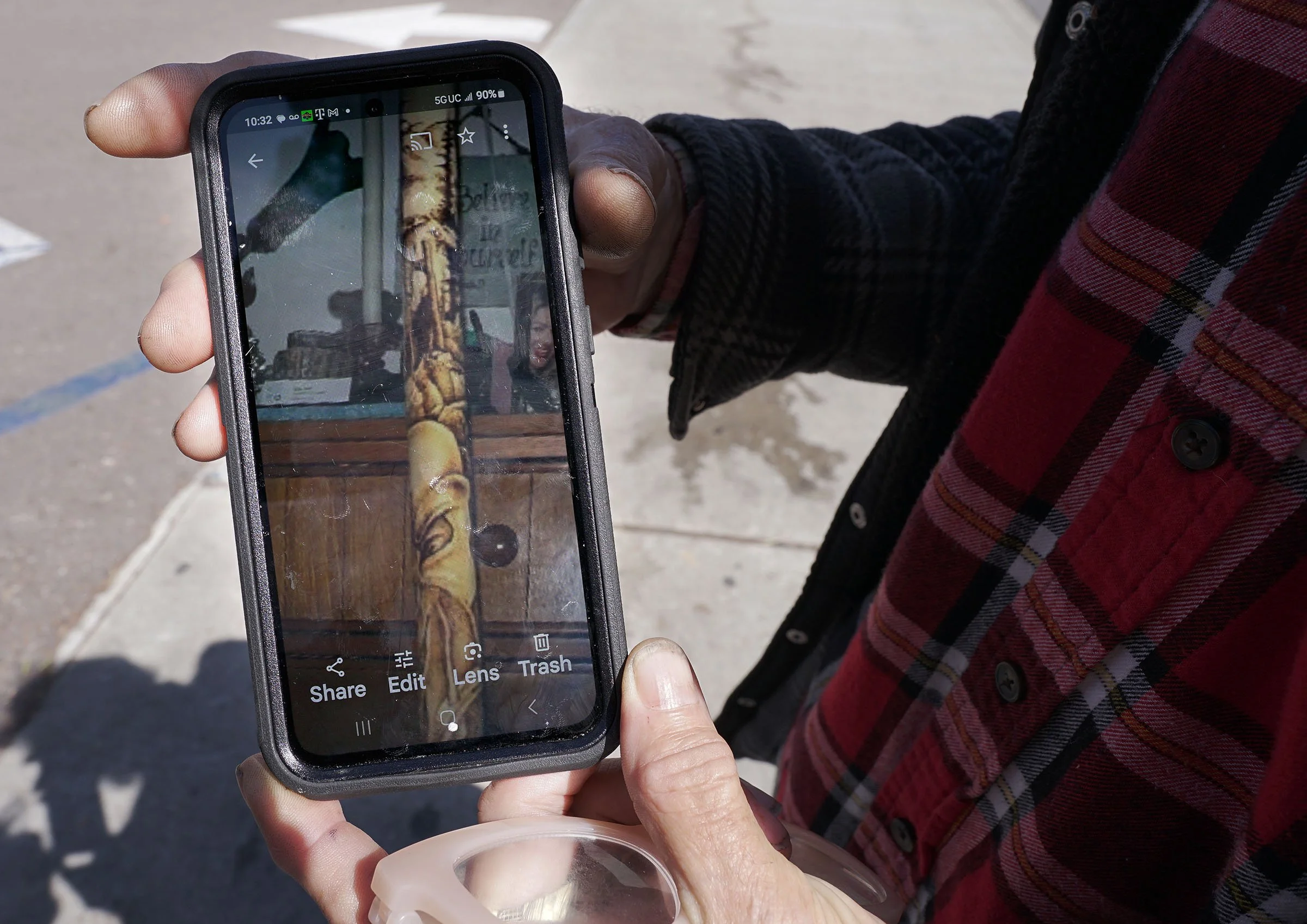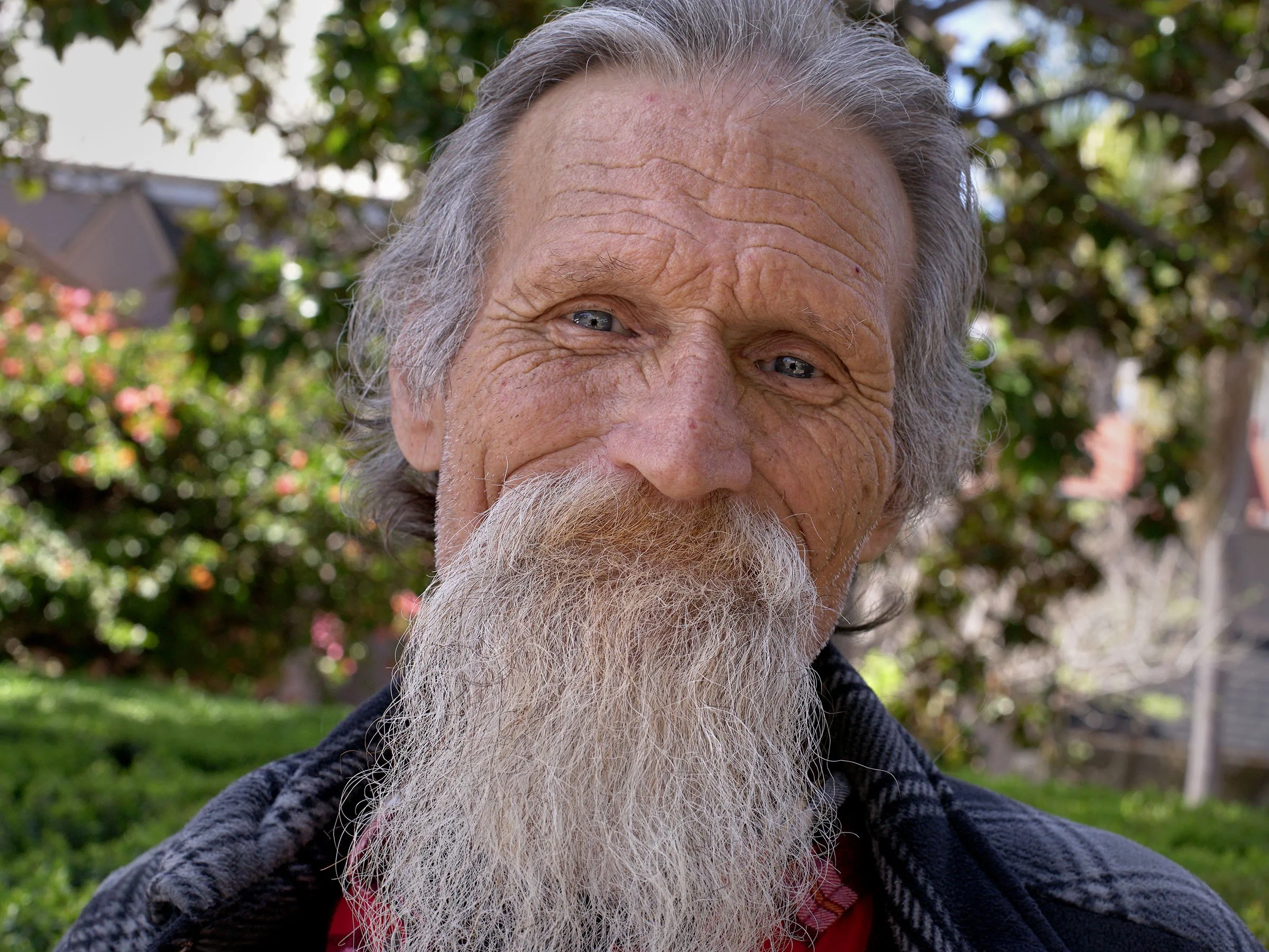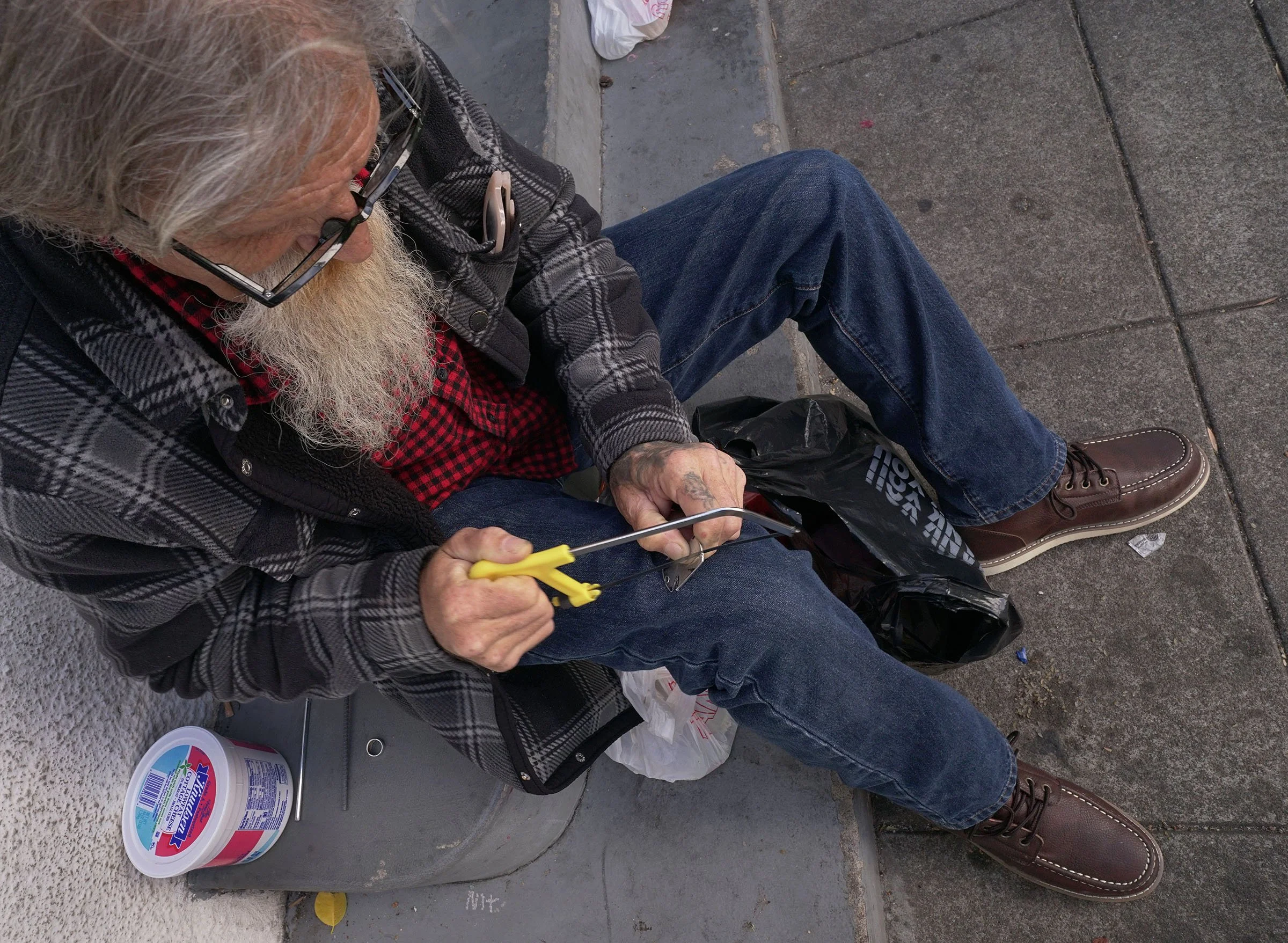Mark the Artist
Mark always liked singing. When he was five he and his three other brothers would sing along with the radio. Their mother immediately recognized their unique harmonizing might impress talent scouts. “She thought we were going to be the next Jackson 5 or something,” Mark said. They never made it big, but Mark and his twin brother Martin always had a magical musical connection when they were together. Several years ago Mark joined the Voices of Our City Choir, performing with them around town. He regrets his bad timing — he left the choir just before they won the golden buzzer at America’s Got Talent in LA.
Mark is not just musically inclined. He’s been drawing since he was nine years old. It started as something to do with his time while in juvenile hall, using a pencil and whatever paper he could find. “It took me 21 hours to draw this rose in a vase. Only one guy stopped to look at it,” Mark said. Over the years he advanced his skills, and began doing tattoos. His first one was a tattoo of the tower at Folsom Prison. The next one wasn’t as good because he was doing it freehand. So someone brought him a windshield wiper motor to work with, and he was off to the races. After doing tattoos for 46 years now, Mark can work either with a motor or freehand, designing and inking like a professional.
Just last year he took a wood burning class at a Christian camp. “My first one looked like I’d been doing it for years,” he said. He has been making personalized canes out of tree branches and bamboo ever since. “I just sold a cane I made that was flames going into a skull, into a waterfall, into angels,” Mark said. He has developed his own style of shading, both in tattoos and in wood burning. “My thought process is different than anybody else’s,” he said. “Anything I put my mind to I do it really well. Anybody who hires me is always glad they do.”
Mark’s father was also an active, focused craftsman who could build or upholster just about anything. Unfortunately, his father was also a physically abusive disciplinarian. He used to whip the boys with a razor strap. “We’d run away, break into homes to eat,” Mark said. “When we were caught, Dad locked us in a room with two pieces of bread and a glass of water.” Mark said he was always glad to get to juvenile hall because at least there they had a ping pong table, movies, games, and food.
He was 15 the last time he saw his father. “And the last time I saw my mom I was 12; that was when I was at CY camp,” Mark added. “At the camp there were evil counselors who twisted kids’ ears.” When his mom came to visit, he told her about it, but she didn’t do anything about it. “That’s when I knew mom didn’t care about me. Thinking back, I knew my dad loved me. Mom feared him. I feared him.” Eventually his parents gave up custody. At the court hearing, the judge came in with his file and dropped it on his desk. “It was two inches thick,” he said. “It was like Cool Hand Luke. The judge said ‘This is the biggest file I’ve ever seen.’”
During his second prison term, at age 23, he was in Folsom with a biker who had an 8-ball of 2-Phenylpropanal (a chemical used for cleaning engines). At first he said no to the offer of a hit, but the cellmate pressed him, saying, “Man, you’re 23 years old and you’re going to spend most of your life in prison. What have you got to lose?” So Mark tried it. “It was like heaven, the way I felt,” he said. “You’re so nice (when you’re high). We gave each other all our stuff.”
After being released from prison that time, he stopped stealing but now was addicted to drugs. “At that point I was a victim of the system. Recidivism is the number one money maker for the CDC. I was in and out, in and out. And they took it out on us when there weren’t enough people locked up. There was less food, fewer razors for shaving, less bedding, like that.”
His identical twin brother Martin also spent most of his life in the carceral system. He was convicted of accessory at age 17. Mark tried to break him out one time when they were both at an OC prison but the opportunity didn’t fully materialize. On another occasion where they were in San Quentin together, Mark got away with changing places with his brother for two weeks, hoping that when it was time for “Mark” to be released, his brother would be freed, but they were thwarted when another inmate busted them. After that the guards carried photos of each of them in their pockets. Mark and Martin had tablets in their cells, and were in constant communication until Martin died October 3, 2023 of heart failure.
The next to last time he was arrested it was in Modesto. He got five years. When he got out he didn’t know anyone. He wanted to move to San Diego, but he couldn’t go anywhere because his parole officer was in Modesto. In fact, his parole officer vowed to keep sending Mark back to prison as often as he could. Even though Mark had a friend in San Diego who would let him stay with him, which would make it easy for him to go to school, the parole officer wouldn’t help him transfer his paperwork. So Mark went into a hardware store in San Diego and intentionally stole some $10 drill bits so he could get busted for petty theft and go to Donovan Prison. “The judge said, ‘what do we have to do (to get you to stop committing crimes and going to prison)?’ I told him, take me straight to a program.” So that is how Mark finally got into a program that helped him change his lifestyle and exit the cycle of recidivism. He got off parole in 2010 and plans to stay that way. “I spent half my juvenile life and 28 years of my adult life in prison. I don’t want to go back.”
He was on a good track, earning a good salary while enjoying work at a restaurant in La Jolla for many years until he was hit by a car and spent months recuperating. He received a $5,000 settlement but just couldn’t carry heavy loads or stand for long periods any more. His employer and fellow employees were sad to see him go, he said, because he was a hard worker and friendly, but the writing was on the wall. He filed for early retirement but only gets $240 a month. He just recently was able to file for disability insurance and will receive more than that, so he is hoping he can finally secure a place to live off the streets. Meanwhile, he has a friend living in an SRO near Balboa Park who lets him stay there a few nights each month, for which he is grateful. He also tries to keep up on his health care. He just recently had cataract surgery. Over the years, largely due to drug use, he has lost a lot of teeth. But was so traumatized by the sadistic dentist in prison who drilled out a bad tooth without giving him any numbing medication that he refuses to see a dentist on the outside. For now, as he attempts to navigate the system to get a place of his own, Mark experiments with different art forms - woodworking, jewelry-making, and drawing - and the occasional impromptu song.



